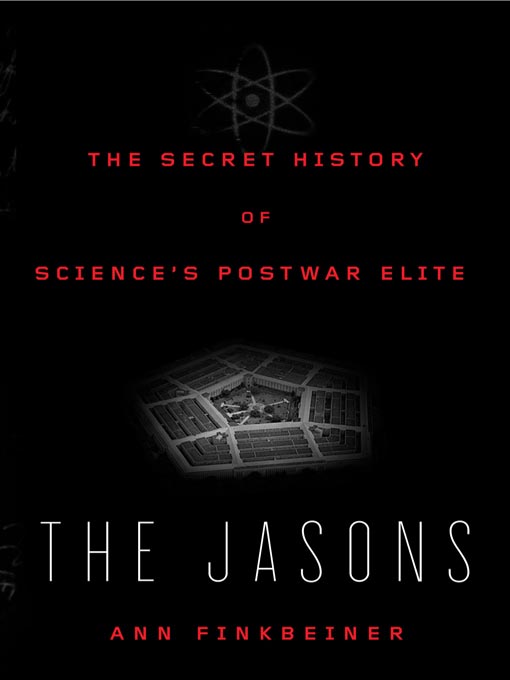
The Jasons
The Secret History of Science's Postwar Elite
کتاب های مرتبط
- اطلاعات
- نقد و بررسی
- دیدگاه کاربران
نقد و بررسی

April 3, 2006
If necessity is the mother of invention, then the U.S. government's midwife for much of the Cold War was a small, brilliant and fiercely independent cadre of physicists who assembled each summer to make scientific reality out of pie-in-the-sky ideas. Ingenious problem-solvers to a man (they were, for decades, an all-boys club), "the Jasons" (a nickname of uncertain origin; it's either taken from the Greek myth, Jason and the Argonauts, or an acronym for the months of July through November) agreed to help the government-and cash its checks-on the condition that their work be free from political influence; if the Pentagon or White House proposed a project the group found absurd or ethically reprehensive, they would say so in their typically blunt, intellectually arrogant manner. However, the smartest people in the room weren't always the savviest, and the Jasons found their work manipulated by the military to suit its own purposes. At least that's the story as told by Finkbeiner, who spent two years interviewing dozens of Jasons past and present and doesn't hesitate to give them the benefit of every doubt that's arisen in the group's shadowy, five-decade history, particularly those dealing with the Jasons' involvement in Vietnam. Nonetheless, Finkbeiner offers a rare and valuable look at the intersection of world politics, military strategy and scientific discovery.

April 1, 2006
"The Jasons", named after the hero of Greek mythology (Jason and the Argonauts), are a group of distinguished American scientists who have been advising various units of the U.S. government since 1960. (During the Vietnam War, they were subjected to considerable public criticism for some of their advice relating to that conflict.) Originally, all Jason members were male physicists, and their sole advisee was the Advanced Research Projects Agency of the Defense Department. Over the years, membership has broadened to include a few women and to extend over a wide variety of scientific fields. The Jasons have reviewed mainly classified military projects, including nuclear warfare and, later, nuclear disarmament plans and proposals. In researching this book, which is divided into nine chapters, freelance science writer Finkbeiner (science writing, Johns Hopkins) has interviewed those past and current Jasons willing to talk to her -not always for attribution -and read a wide range of relevant publications. She has done an excellent job, producing a balanced and informative work about an influential and somewhat (until now) mysterious organization. " -Jack W. Weigel, formerly with Univ. of Michigan Lib., Ann Arbor"
Copyright 2006 Library Journal, LLC Used with permission.

April 15, 2006
At a dinner honoring Freeman Dyson, Finkbeiner heard the physicist allude to government advisors called "the Jasons," a group little known except to Pentagon insiders. The first author to devote a book to the Jasons, Finkbeiner explains that they are a self-selecting cadre of scientists independent of the government who evaluate military technologies at the frontier of physical feasibility. Intrigued, Finkbeiner sought interviews with Jasons. Some jovially consented, others refused, and two guardedly agreed if identified as "Dr. X" and "Dr. Y." The reasons for anonymity are emblematic themes in Finkbeiner's fascinating account: Dr. X didn't want to reveal too much about the Jasons' secret work; Dr. Y didn't want to be hassled by antimilitary zealots at her university. So the dilemma between the "technically sweet," as Finkbeiner aptly quotes Robert Oppenheimer, and the morally objectionable courses through her account of the Jasons' brainstorming about weaponry at annual summer retreats since their founding in 1960. Readers interested in the politics of science will become deeply absorbed in Finkbeiner's original organizational history.(Reprinted with permission of Booklist, copyright 2006, American Library Association.)

























دیدگاه کاربران